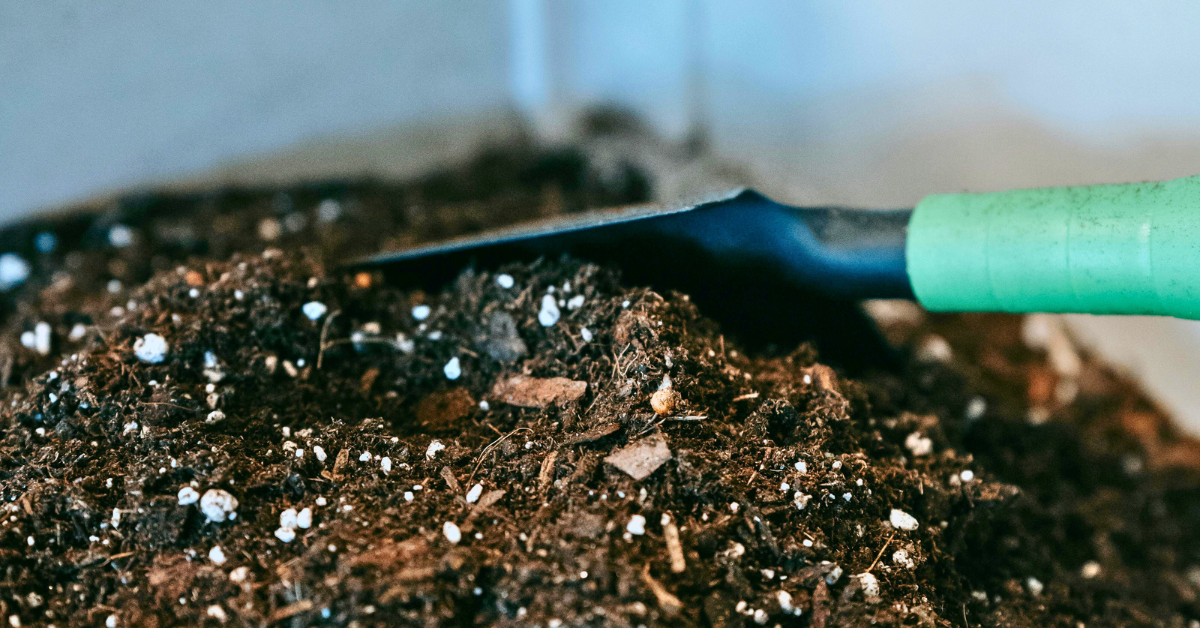Maintaining an abundant organic garden includes nurturing the soil and plants with natural fertilizers that promote healthy growth without harming the environment. ‘
Choosing the right type of fertilizer, knowing when to apply it, and understanding what to avoid are crucial for a thriving organic garden. All fertilizers contain supplies of nitrogen (N), utilized for vegetative (stem and leaf) growth, phosphorus (P), which promotes root development, flowers, and fruiting, and potassium (K), which promotes general plant health and disease resistance.
Types of Organic Fertilizers and Soil Amendments
Compost: Compost, organic matter that has been biologically decomposed, improves soil structure and moisture retention. Plant-based compost is nature’s richest soil conditioner. As it opens up air channels in Colorado’s heavy clay soil, it creates conditions for optimal growth, providing a season-wide, slow release of major and minor nutrients and promoting deeply rooted plants. In addition to feeding the plants, it supports the growth of a diverse, interconnected system of soil microorganisms, who, in turn, add to the nutritional profile of the soil. The benefits of compost can also be extended by steeping partially aged compost in water to produce a tea, which can be utilized as a ‘foliar spray’ on the leaves.
Want to create your own compost? Learn more here.
Worm Compost (Vermicompost): Specialized composting worms, known as ‘red wigglers’ can provide a year-round supply of worm castings, a rich source of all major and minor nutrients. Worms are easy to maintain, can live indoors during the winter in smaller, aerated containers, as well as allow children to participate in an appreciation of some of our most valuable decomposer friends.
Register for an upcoming vermicompost workshop.
Fish Emulsion: A liquid fertilizer made from fish by-products, fish emulsion is high in nitrogen, promoting leafy growth, and is best utilized on young transplants, herbs, leafy salad greens, and the broccoli family. Limit its uses on fruiting vegetables such as squash, peppers, cucumbers and tomatoes, since those vegetables require a fertilizer higher in phosphorus.
Kelp Meal: Derived from seaweed, kelp meal provides essential minerals and growth hormones. It’s a slow-release fertilizer often mixed with fish emulsion to provide a source of nitrogen, phosphorus, and potassium. Kelp, in the form of liquid kelp, can be utilized as a foliar spray to help plants recover from stress conditions such as hail or insect damage.
Balanced Organic Fertilizers: Balanced Organic Fertilizers such as Dr. Earth, Espoma Garden-Tone, and Tomato-Tone, offer nutrients in forms that are not immediately accessible to plants. These nutrients need to be converted by soil microorganisms into plant-available forms, making them ‘slow release’ fertilizers. This gradual nutrient release improves soil properties by adding organic matter. Additionally, many organic fertilizer blends include beneficial bacteria that enhance nutrient uptake. For optimal conversion of organic nutrients, soils should have sufficient moisture and temperatures of 50 degrees Fahrenheit or above, which are ideal conditions for microorganism activity.
Cover Crops and Mulch: Various grains, legumes, and grasses, can provide a rich source of nutrients throughout the season. Their top growth is typically cut down before flowering and can be used either in compost piles or as mulch around garden plants. The root structures of these crops create deep air channels in the soil, promoting aeration and offering a season-long source of nutrition for plants and soil microorganisms. By incorporating cover crops and mulch, gardeners can enhance soil health, improve nutrient availability, and support beneficial microbial activity.
Tips for Successful Fertilizing
Timing: The timing of fertilization is key to maximizing plant health. Generally, organic gardens benefit from fertilization in early spring when plants start to grow and again in mid-summer to boost growth during the peak growing season.
Application: Always mix any organic products used into the top layer of soil and water the garden well after applying fertilizers to help nutrients reach the root zone. Additionally, over-fertilizing can lead to nutrient runoff, which harms local waterways and can cause nutrient imbalances in the soil. Always follow recommended application rates and consider conducting a soil test to determine specific nutrient needs.
Organic: Avoid using synthetic fertilizers, as they can harm soil life and disrupt the natural ecosystem of your garden.

